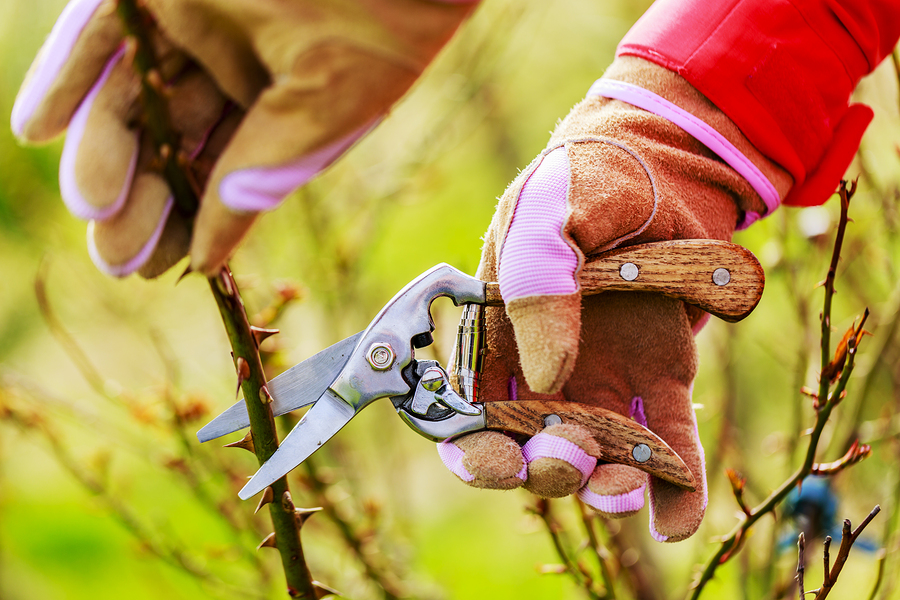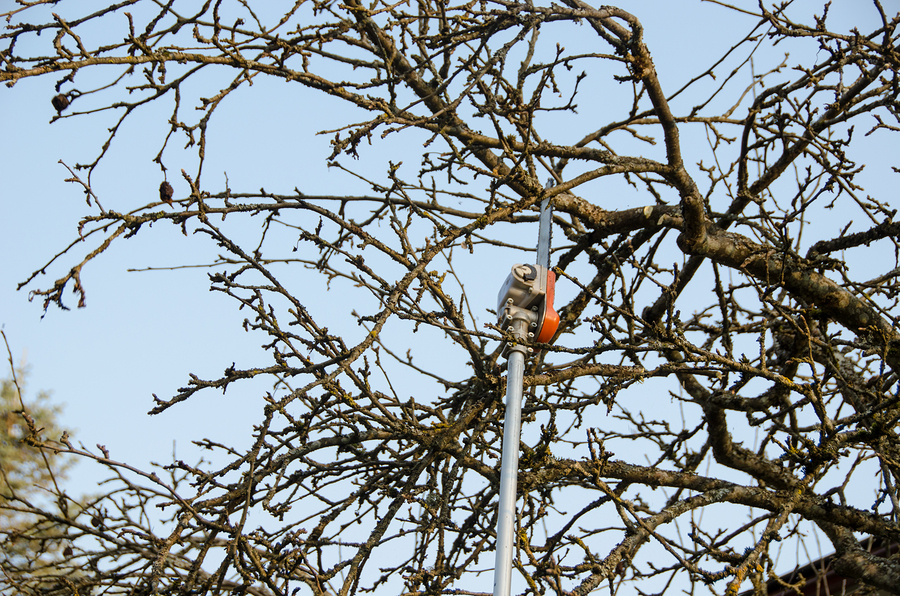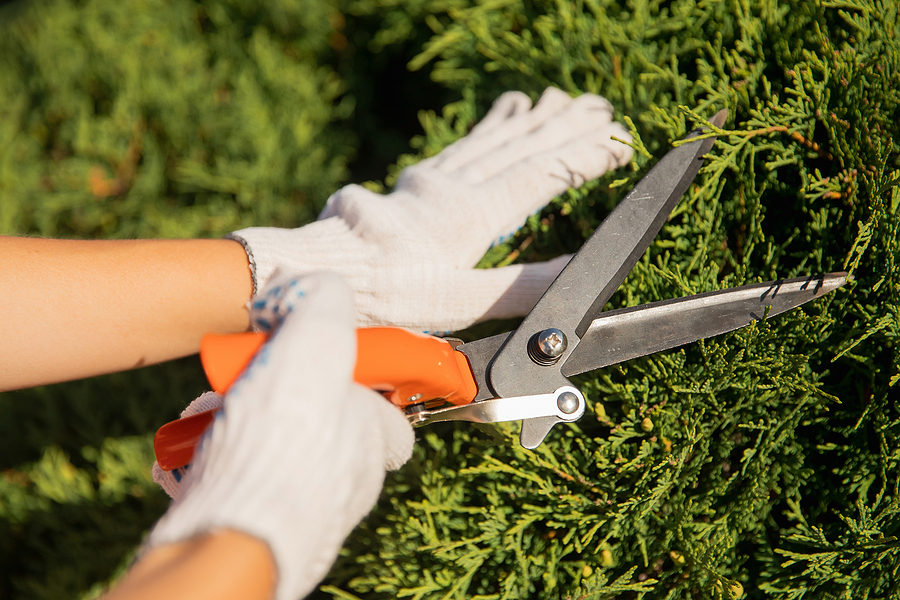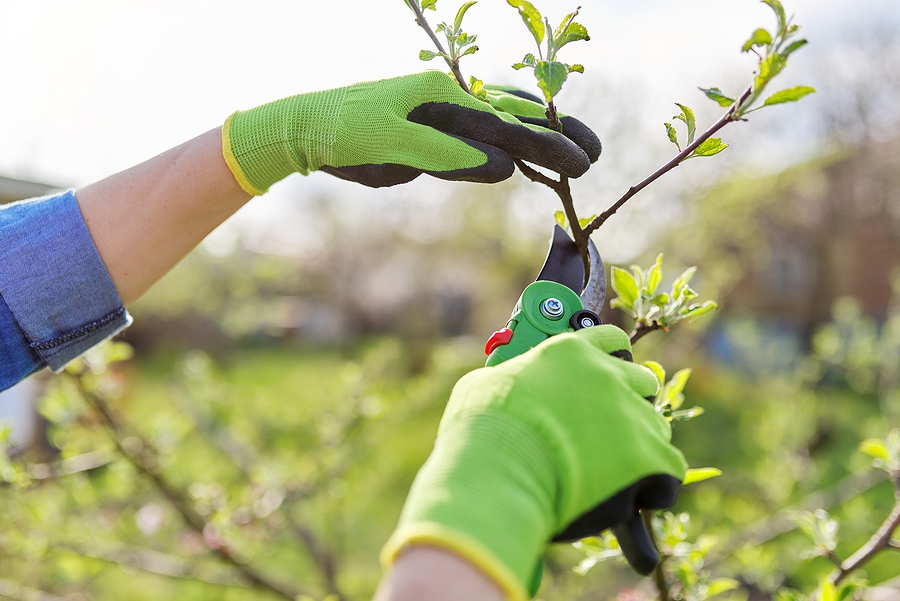The benefits of pruning
As we find ourselves enjoying the lighter mornings and evenings of spring, thoughts turn to the garden. With more time spent in it with friends and family, tidying and maintenance go to the top of our to-do list.
The number of gardening jobs can seem overwhelming from weeding, raking and mowing. The one though that seems to spark fear in the heart of many a gardener is pruning!
What is it and how should you do it? Worry no longer! In this article, we look at the benefits of pruning and why time spent pruning in the garden is time well spent.
Keeps your plants and trees healthy

Spring pruning roses in the garden
Pruning is all about controlling a plants growth and development. When you prune you remove those parts of a tree or shrub including branches, buds or roots that are dead, dying or lacking in sunlight.
By cutting away these useless and harmful parts you encourage healthier growth and development. Increased fruit, flowers and thicker foliage are all a result of effective pruning.
Pruning does this by improving the airflow through the plant and tree as well as encouraging the absorption of sunlight which in turn prevents disease. The removal of dead branches which often contain viruses, bacteria and fungus help prevent the spread to healthier parts.
Trains your shrubs and trees
If you have a shrub that is not growing straight or is too bulky, you can train it back into shape and encourage growth in the right direction by pruning and using specific cuts.
Heading cuts are precise cuts made to encourage new side growth rather than growth from the main stem of the plant. Here you cut back to a node or a bud.
Thinning cuts remove an entire branch or stem to encourage an open canopy and to let more light in. This cut is made at the point where it joins another branch or the main stem, so back to its origin.
Helps to improve the look of your garden
Woody plants which have lots of branches all going off in different directions don’t always look very nice. Pruning these will immediately make them look much more appealing. As well as this you will get bigger and brighter flowers from newer or younger stems so removing older ones will only help with this.
Reduces pests in your garden

Fruit tree pruning
Wood can become infected with a range of pests including mildew, canker and silver leaf. These pests love unpruned trees as they give them dense shelter and more places to hide. They also tend to have more moisture which pests love. Moisture in unpruned trees can also increase the risk of tree fungus as well as other diseases.
Gives you better quality fruit
Fruit grows best on trees around two to five years of age. When you prune a fruit tree you reduce the amount of old wood on it and the tree then diverts its energy into growing larger fruit.
If left unpruned fruit trees will produce fruit but can develop thin, overcrowded and weak branches affecting the strength of the tree and the quality of the fruit. Of course, how often you prune, depends on the particular type of fruit tree. Never remove the top-most part of a tree.
Restricts growth in limited space

Trimming bushes
If left alone then trees and shrubs will grow to a size that can impact the area around them. Pruning is necessary to ensure that this does not happen when you have limited space. Unpruned trees for example can result in overcrowding branches and twigs which can cause falling branches or root damage.
Remember though certain plants and trees need a lot of space, and pruning them too much will not make them fit into something smaller. It may also damage them in the long run.
Pruning takes care of the trees and plants in your garden. In turn, this leads to healthier and more attractive surroundings for you and your family. So add pruning to your garden maintenance and enjoy the results.
Join our Silversurfers Club+ Pruning Masterclass here
Melina - Assistant Editor
Latest posts by Melina - Assistant Editor (see all)
- By yourself at Christmas this year? Tips on how to manage alone - December 16, 2024
- The Silversurfers, just for fun, Christmas Quiz! - December 14, 2024
- 10 potential hazards for pets at Christmas - December 10, 2024
- Christmas Spiced Blueberry Panettones - December 1, 2024
- Three must have toys of the late 60’s - November 24, 2024




















